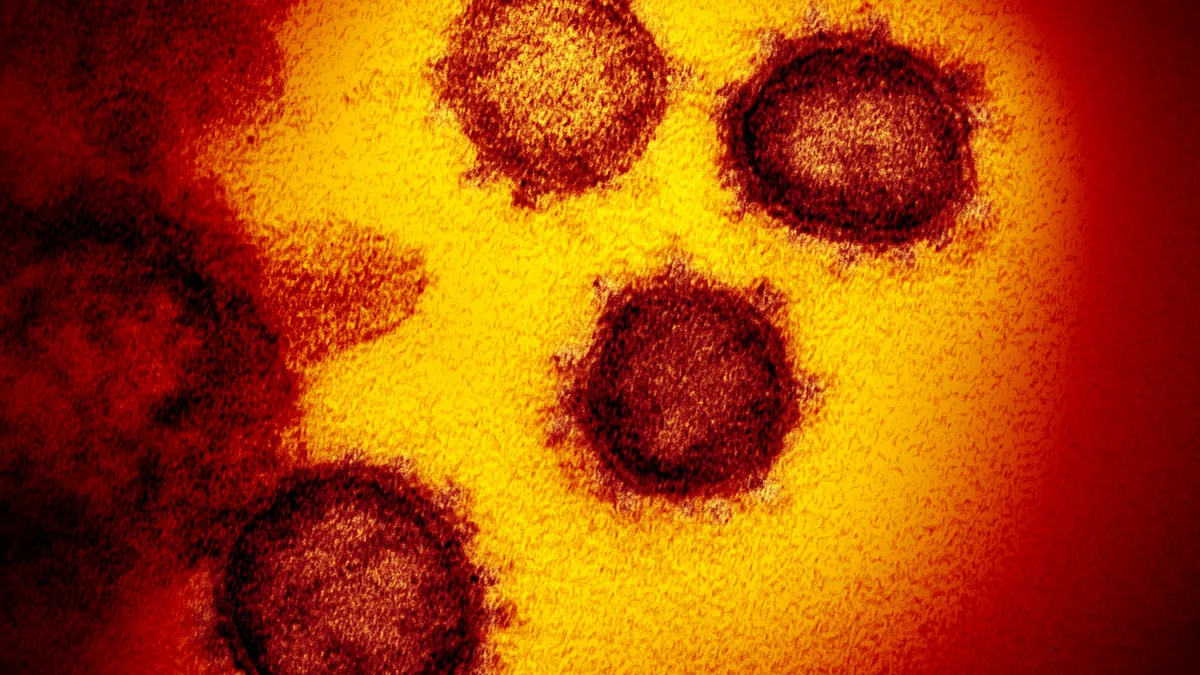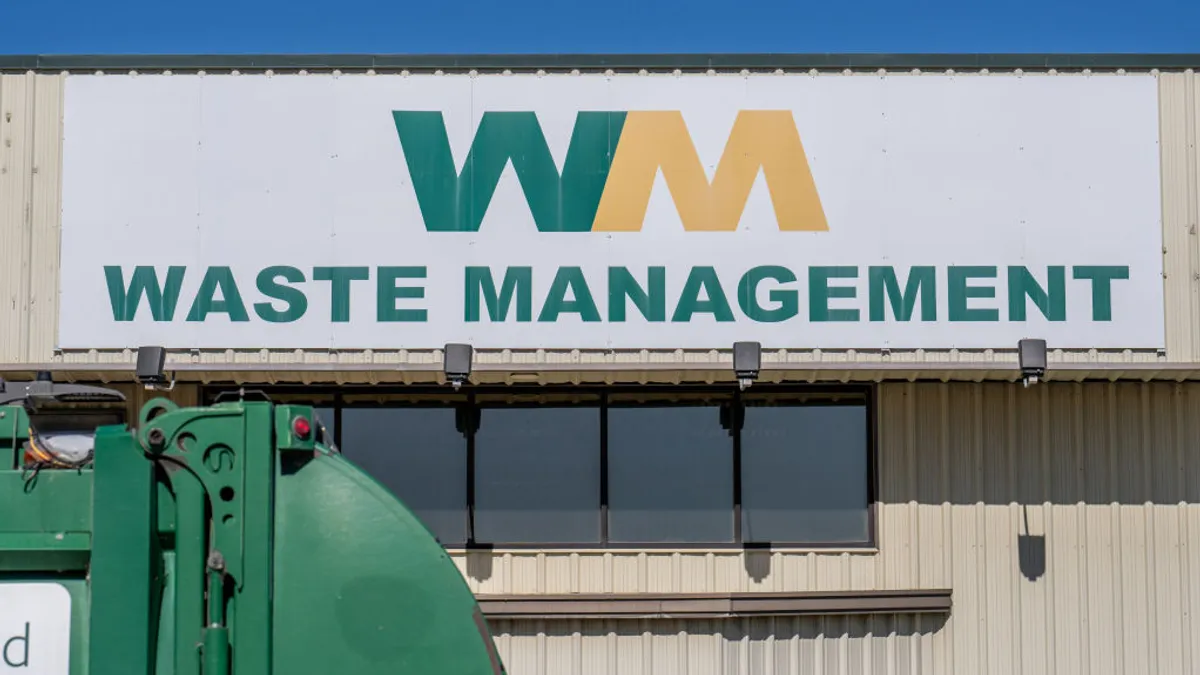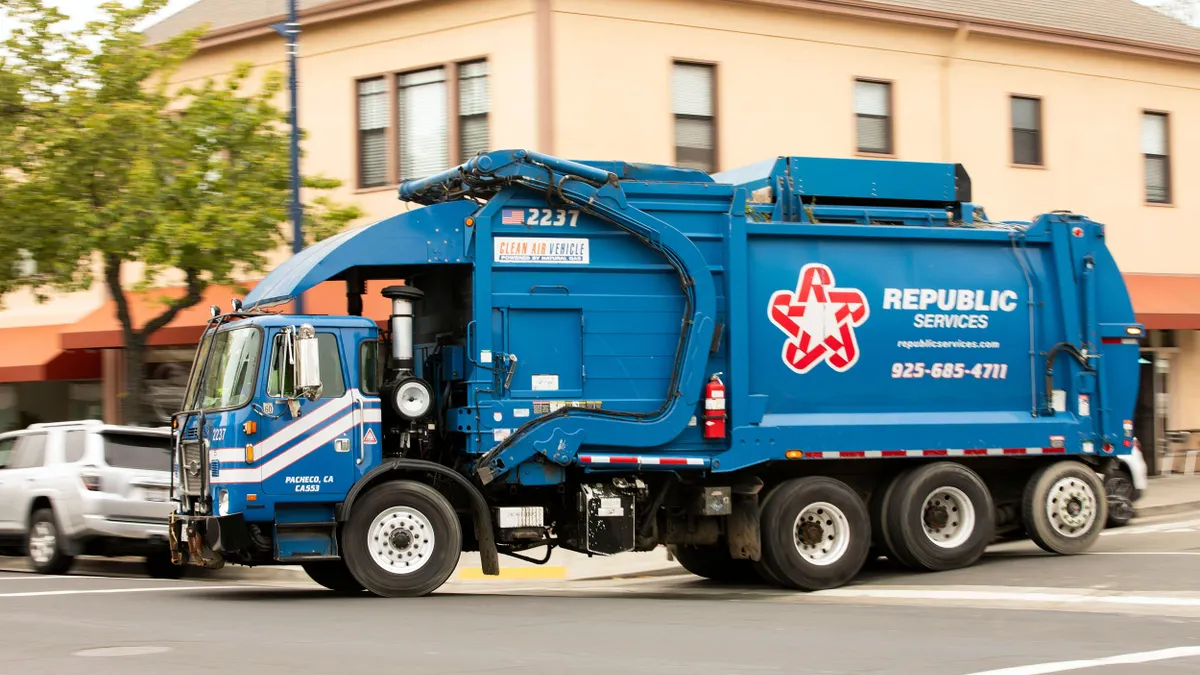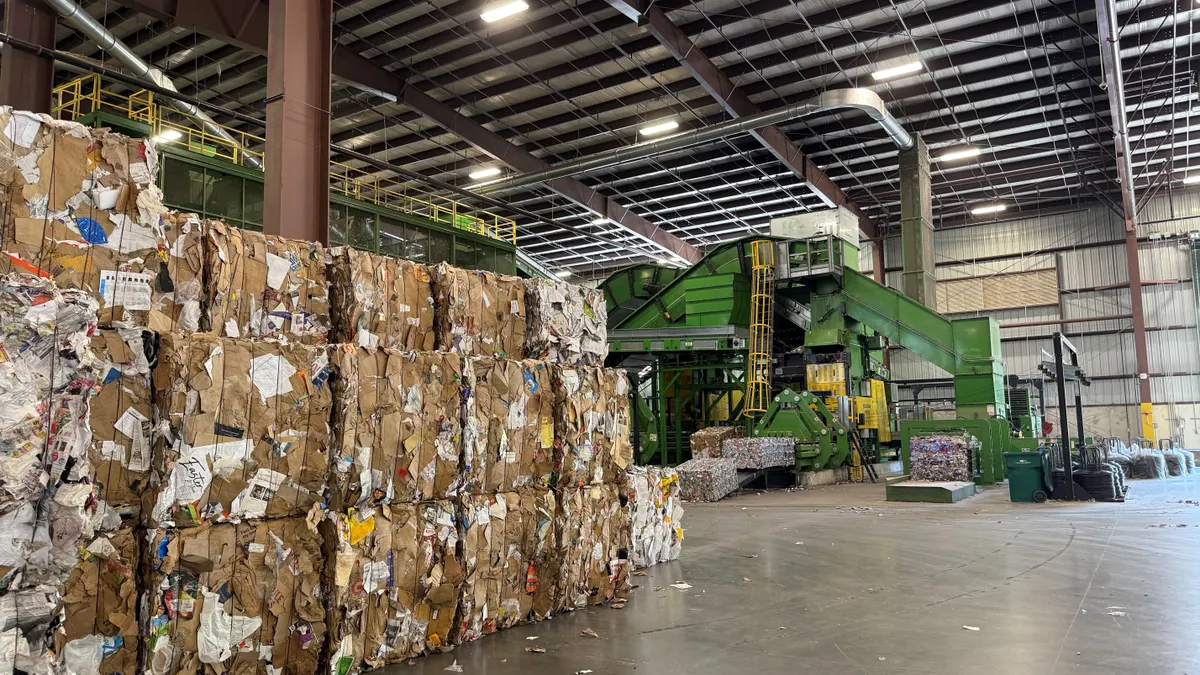Medical waste companies are closely monitoring the spread of the rapidly changing coronavirus pandemic in the United States, with mounting questions about a potential uptick in volumes as well as elevated risk to workers.
"From a waste perspective, the biggest [question is] what will be happening with the guidance associated with medical waste coming out of health care facilities," said Elise Paeffgen, a partner with the firm Alston & Bird, who specializes in health care and environmental regulatory issues.
Several companies told Waste Dive on Monday the situation was changing almost on an hourly basis. And even as they follow regulatory updates and guidance, they remain unsure about how waste volumes and operations will ultimately be shaped by the days, weeks and potentially months to come.
In China, the coronavirus — which causes the disease COVID-19 — has left the country dealing with mountains of medical waste. The South China Morning Post has reported 28 cities are struggling to manage it, including Wuhan, the first area majorly impacted by the crisis. That city is producing more than six times its usual amount of medical waste, per the Post's reporting, and medical waste treatment facilities in all the affected cities are working at their full capacity. During the height of the outbreak in Wuhan, the city was dealing with 240 tons of medical waste per day, versus 40 tons prior to that.
Paeffgen told Waste Dive it is unclear if the situation in China would be reflected in the United States, but she pointed to industry movements as an indicator the sector is preparing for a potential onslaught. The National Waste and Recycling Association (NWRA) has asked Congress and the Trump administration to include the industry in its national emergency declaration, specifically to exempt medical waste haulers from Hours of Service (HOS) regulations.
NWRA has also sent Congress draft legislative language amending Federal Motor Carrier Safety Administration guidelines to include HOS exemptions for waste haulers in future national emergency declarations. That draft wording singles out "motor carriers and drivers providing direct assistance in support of national emergency relief efforts" and includes "the collection of medical, residential, and commercial waste" as critical to national aid.
Unions like the Teamsters have historically resisted longer work hours and heavier loads for members. But Paeffgen explained the industry is looking for leeway "relating to storage time and quantities" as it braces for a potentially major uptick in volumes. "They may need extra time to meet their customer demands," she said.
States usually require medical waste be separated from MSW and it must be rendered noninfectious prior to disposal. Companies accustomed to dealing with medical waste are closely monitoring the situation and preparing for a number of potential scenarios.
Jennifer Koenig, vice president of corporate communications with Stericycle, indicated the coronavirus could be different from other major health incidents. And unlike China, she said the United States may not be facing a staggering uptick in medical waste.
"Wastes generated from the care of COVID-19 patients do not generate excessive volumes of waste as was the case with Ebola, for example," Koenig told Waste Dive. "We are seeing some increase due to the use of additional personal protective equipment and some increase in non-traditional wastes being managed as regulated medical waste, but we have not seen a major increase at this time."
If the number of U.S. patients spikes, however, the situation could change dramatically. Koenig caveated that Stericycle is watching the situation and working to "ensure access to safe, compliant disposal of medical waste during this pandemic." The company has been monitoring waste generated with COVID-19 treatment in health care facilities, as well as quarantine sites.
That medical waste is currently being handled in accordance with routine procedures. So far, the Centers for Disease Control and Prevention (CDC), U.S. Department of Transportation, and Occupational Safety and Health Administration (OSHA) have not indicated elevated concerns about the novel coronavirus and medical waste. However, Stericycle is reminding generators to carefully package any waste to ensure collection worker safety, and the company said it is closely following regulatory developments surrounding COVID-19.
Differences in the danger posed by outbreaks factor into responses, as well as into how waste is handled. Waste deemed by the U.S. government to be Category A indicates death or extreme elevated risk to even healthy people and animals, while the new coronavirus is being treated as a less-severe Category B. An example of a Category A scenario is Ebola, while Category B is more on the scale of SARS, the contagious and sometimes fatal respiratory disease caused by a different coronavirus that spread globally in the early 2000s.
That reduced risk level has shaped guidance from NWRA and the Solid Waste Association of North America, who are following CDC's lead. But some concern is also growing due to a recent study finding the new coronavirus can live on certain surfaces for an elevated period of time, including up to three days for plastics and stainless steel. Conducted by researchers with the National Institutes of Health, the CDC, and multiple universities, the study's findings could have significant implications for waste and recycling workers.
Still, it remains unclear how the study's findings apply to real-world scenarios, especially for workers interacting with medical waste. Bob Cappadona, Veolia North America's executive vice president and COO for environmental solutions and services, told Waste Dive the company is currently dealing with the "known and the unknown," while trying to take precautions to protect employees.
"Veolia operates in so many countries around the world, we had a bit of an advance window into what we're going to see here in the U.S.," said Cappadona.
The company has experience dealing with outbreaks like Ebola, but Cappadona acknowledged the current pandemic is unprecedented in its scope and impacts. He said Veolia has been in contact with other waste companies regarding the situation and asserted confidence in the industry. But he also emphasized Veolia's approach to medical waste, especially in a time of uncertainty.
"We've had to make sure that our plans align with the risks and issues and frankly volumes associated with this," he said, explaining workers are "looking at risks of exposure and how we control that."
Veolia's safety team is inspecting rules around containers and packaging containing the new medical waste. "When a container [we are concerned about] comes into our facility, we don't touch it, we use mechanical means" for disposal, Cappadona explained.
Paeffgen, the attorney, emphasized that from a regulatory and operational perspective, one of the most important things companies can do is ensure workers have access to protective gear, something that may become difficult.
"[It] could become challenging from an operational perspective," she said, noting the "general public is purchasing so many of those [items]" like gloves and masks.
Other components of the situation are also changing swiftly. While household waste is typically categorized as MSW, Paeffgen advised checking in with local health departments about any changes regarding waste generated in homes associated with COVID-19 cases.
For the industry, following these hour-by-hour changes will be crucial, even as long-term implications loom large. Companies are generally declining to speculate on the impact the pandemic will have on business, especially as the situation escalates.
"What does business look like in the recovery phase?" asked Cappadona. "I don't think any of us know right now."


















